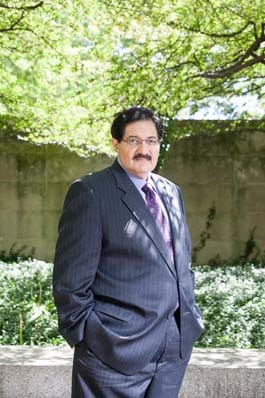He pauses for a moment, unable to come up with an answer. Ignacio Salazar has been asked to recall an anecdote that illustrates his organization’s effectiveness throughout its decades of history. It’s not that Salazar can’t think of an example—but as SER-Jobs for Progress National, Inc. prepares to celebrate its 50th anniversary, Salazar finds it impossible to limit his answer to just one story.

Before he served 10 years in the United States House of Representatives, Congressman Joe Baca worked for SER’s Los Angeles chapter. After completing SER training in Dallas, board member Janey Camacho-Appia started as an administrative assistant at 7-Eleven, Inc. more than 30 years ago. Today, she serves as company manager of consumer and Latino affairs. Salazar could go on and on talking about SER’s alumni including high school drop outs who have received their online GEDs and national leaders who excelled after participating in mentoring programs.
SER (Service, Employment, and Redevelopment, as well as, the Spanish verb “to be”) meets the needs of Hispanics by providing services in education, business, training, employment, and economic opportunity. The group reaches more than one million people annually. Salazar, who came to SER in 1975, says the impact is humbling. “We have alumni and participants all across the world from major corporations to Wall Street to universities. It’s amazing to look back and realize that we were able to help people discover their abilities because sometimes they just need that one opportunity that will make a huge difference for the rest of their life,” he explains.
And SER exists to provide those opportunities. Started in 1964 as Operation SER and was included in President Lyndon Johnson’s War on Poverty legislation, SER has ballooned from one Houston location to a robust national network of service providers.
Salazar understands the need for opportunity, as he was born to migrant farm workers who split time between Texas and Michigan and ended up in the northern state after a medical issue depleted family funds. As his parents transitioned to the manufacturing industry, they grew to call Michigan home. Salazar, after completing his doctoral studies, and became involved in a fledgling program out of Detroit called SER.
Not long after discovering SER, Salazar found himself at a crossroads. He was a single parent and working at the University of Michigan. When the SER job became available in Detroit, Salazar jumped at the chance, taking on a contract that would expire a month later. “I had to win a new contract or I would have to go back to working at the University,” he recalls. “I didn’t have the right information, our fire-damaged building lacked heat, and I was using terminology I didn’t understand. You could say I was in over my head.”
Luckily for the organization, Salazar persevered against the odds. Within the four years, he became president of the SER-Metro Detroit affiliate and took SER from a budget of $100,000 to one of $3 million. SER was doing unique things by forming subsidiaries around Michigan and Illinois and growing at rates unheard of for nonprofits. Things were looking up—until 2001. Salazar had been on the national board for just one month when he learned that the national president was resigning. Worse, SER national needed a loan of $125,000 to stay afloat. Since Salazar had done so well in leading the Michigan affiliate, he intervened, becoming acting president and loaning SER national $900,000 that has since been repaid. SER was saved. Salazar became president in 2003, and the financially solvent national corporation recently has seen revenues approach $50 million annually.
Salazar recognizes that he could have gone the other way. He could have refused the loan and taken a job at a university or corporation. He chose to stay. “You have a legacy and a history,” he says. “SER was created by two national organizations and other people have poured a lot of themselves into this. Wherever I go, somebody always has a story about how SER has touched them, and I wanted that to continue.”
Because of these efforts, SER continues to touch millions of lives a year. “We have a footprint larger than anyone in the country in training and workforce development,” Salazar says. The group, after all, has programs for all ages from early childhood to senior citizens. SER boasts charter schools, alternative schools, youth-mentoring programs, scholarships, skill-development classes, national senior programs, and more. Salazar even started an accredited post-secondary institution that spurns student loans in favor of grants and scholarships that help students graduate without debt. An online high school, valid in all 50 states, provides four years of classes for a minimum tuition of $1,000, which is paid for by grants and scholarships.
One of Salazar’s favorite parts of his job is graduation day. “I look at these participants who have gone from frustrated and timid on the first day to flourishing and empowered on the last. It’s rewarding,” he says. And SER graduates make the day an event. Salazar has learned over the years that a graduation for 100 students requires space for 800 people. “It’s a big deal,” he says. “It’s a celebration.”

